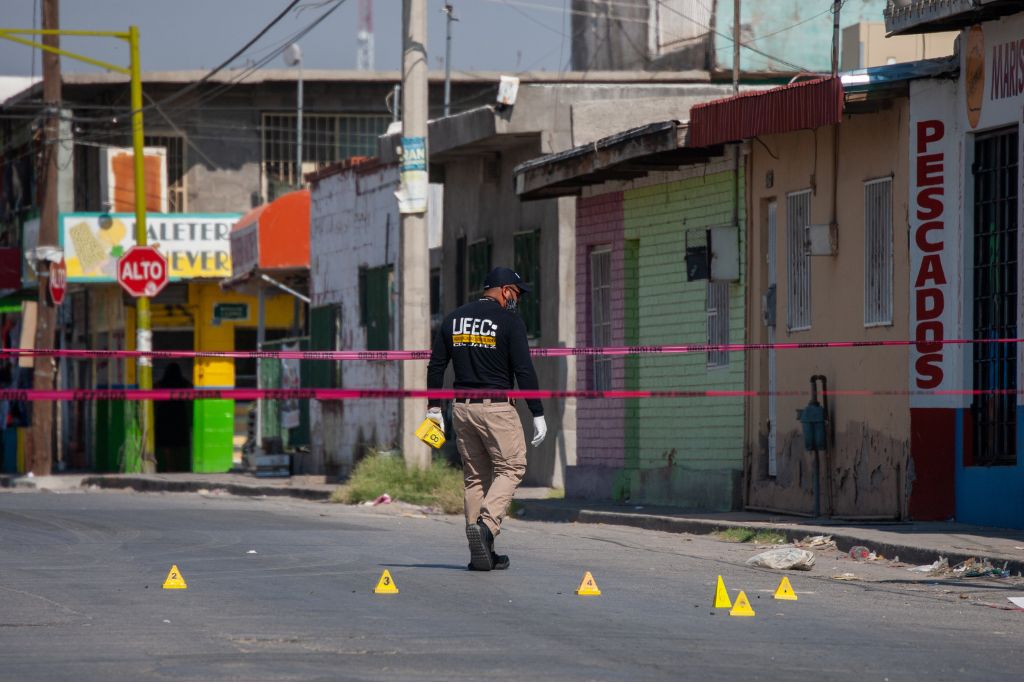The recent killing of an American couple, Rafael Cardona Aguilera and Gloria Ambriz, in Michoacán has brought to light the escalating security concerns in Mexico, especially in areas deeply affected by organized crime. The couple, hailing from Sacramento, California, was targeted while driving in Angamacutiro on December 11, 2024. Their murder, where Gloria died on the spot and Rafael later in the hospital, has led to a cancellation of public Christmas festivities in the town, serving as a stark reminder of how violence infiltrates everyday life in affected regions. Such incidents reflect a broader trend of increasing violence that poses significant risks not only to local communities but also to tourists visiting Mexico.
This event is part of a disturbing pattern, with another recent case highlighting the dangers faced by Americans in Mexico. Nicholas Douglass Quets, an American surfer, was murdered in Sonora while on family vacation in November 2024, amplifying concerns over safety in popular tourist destinations. With the U.S. Department of State issuing travel warnings for various regions, including Michoacán, it is clear that the violence, characterized by homicides and kidnappings, has reached alarming levels. These advisories serve to caution American citizens about traveling to specific areas, a concern that threatens to hinder the vital tourism industry that significantly contributes to Mexico’s economy.
The roots of violence in Mexico stem from multifaceted issues including drug trafficking, rampant corruption, and ineffective law enforcement. The inability of authorities to enforce the law effectively enables criminal organizations to operate with minimal oversight, endangering both citizens and foreign visitors. The trend of increasing crime could have dire repercussions for Mexico’s tourism sector, which welcomed over 45 million international visitors in 2019, providing a substantial economic boost. However, the rise in violence could reverse these gains, particularly impacting those who rely on tourism for their livelihoods.
Addressing the urgent security crisis requires a collaborative approach involving Mexican authorities and foreign entities. Comprehensive strategies must be developed that include enhancing training and resources for security forces, fostering economic development in violence-impacted regions, and reinforcing the judicial system to ensure accountability for criminal actions. It is also essential for the international community to play a supportive role by sharing intelligence, providing technical assistance, and offering financial support to help Mexico combat the entrenched issues of crime and violence. Moreover, addressing the root causes—most notably, the demand for illegal drugs in consumer nations—can help reduce the violence that has become synonymous with Mexico’s fight against drug cartels.
The tragic death of Aguilera and Ambriz serves as a grim reminder of the pressing need to enhance security in Mexico. Ensuring the safety of residents and tourists alike should be a governmental priority, necessitating immediate and tangible actions to restore peace. Without significant changes and a commitment to improving public safety, Mexico risks losing not only its reputation but also its capacity to sustain a thriving tourism sector, which is a lifeline for many communities across the country.
In conclusion, the increasing violence in Mexico, as exemplified by the recent murders of American citizens, highlights a critical and ongoing crisis that requires urgent attention. A multifaceted solution involving cooperation between the Mexican government and the international community is necessary to tackle this growing threat to public safety. The potential ramifications for tourism, local economies, and community well-being underscore the importance of acting decisively to reclaim safety and security in a country with a rich cultural heritage and significant global ties. As stakeholders work towards restoring confidence among citizens and travelers, the need for reforms in law enforcement and judicial systems, alongside economic initiatives, will be paramount for Mexico’s future stability.

